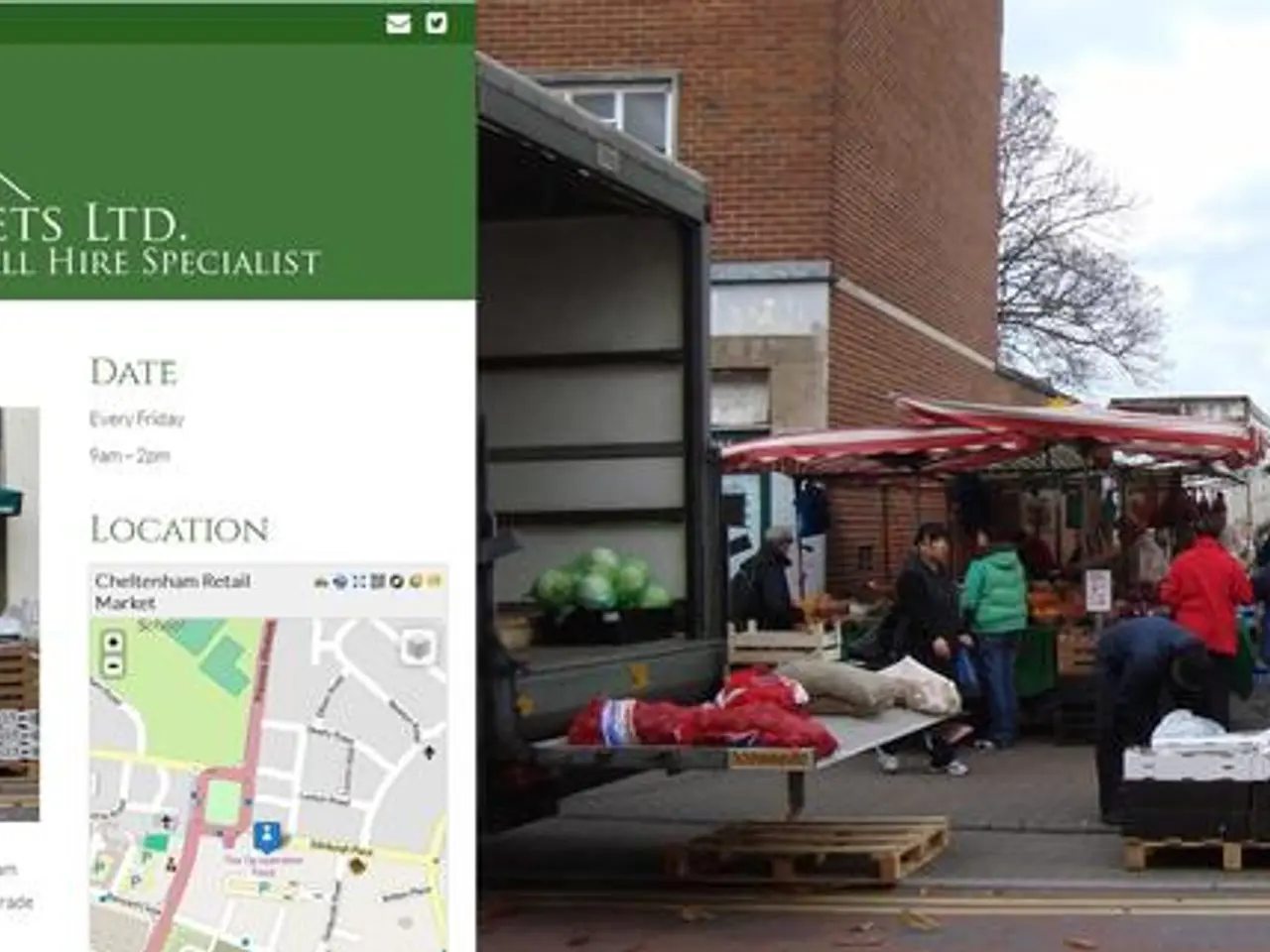Retail sales enjoy a boost in July due to lionesses' victories
The retail sector in Britain is currently grappling with rising costs and weak online participation, as revealed by recent reports.
Chancellor Rachel Reeves' policies have imposed new costs on British retailers, primarily through increased employer National Insurance contributions and a 6.7% rise in the national living wage. These measures have resulted in approximately £7 billion in additional costs and taxes for retail businesses since Labour took power in 2024.
According to a British Retail Consortium (BRC) survey, two-thirds of retail finance directors expect to raise prices within the next year, and 88% now list tax and regulation as their top concern—up sharply from 62% earlier in 2025. Retailers report that these higher costs are putting pressure on their already thin margins, making price increases to customers inevitable. There are also warnings that these tax hikes and rising costs could lead to fresh job cuts in the sector.
The sector is also facing disproportionately high business taxes (7.4%) relative to their contribution to the economy (5%), and an especially high share of business rates (21%). This has fueled calls for meaningful business rates relief to avoid exacerbating store closures or increased costs.
Despite these challenges, total sales in July increased by 2.5% compared to the same month the previous year. However, the demand for food sales was boosted by sports fans watching TV during the month, resulting in a 3.9% increase. The increase in food sales was partly due to inflation pushing up prices.
Online participation in retail sales was weak, with many British retailers, including supermarket giants like Tesco, Sainsbury's, and Aldi, making job cuts and slowing hiring to manage growing costs. The BRC boss, Helen Dickinson, stated that sales growth at these levels are barely touching the sides of covering the £7 billion of new costs imposed on retailers at the last budget.
The continued pressure on the sector is due to the UK Government-induced cost growth, making it challenging for retailers to balance sales and margin progression. The hot August weather and base rate cut could potentially provide support to retail activity. However, there is uncertainty about whether these factors will be enough to offset the anticipated Autumn tax rises.
The UK labour and housing markets are being monitored as drivers for retail activity. Meanwhile, retailers are grappling with extra annual costs imposed by Chancellor Rachel Reeves. The demand for food sales remains strong, driven by inflation, but the outlook for non-food store sales is less certain.
David Hughes, equity research analyst at Shore Capital, stated that July can be considered sound from a top-line perspective for UK retailers, but continued pressure on the sector exists. DIY investing platforms such as AJ Bell, Hargreaves Lansdown, interactive investor, InvestEngine, and Trading 212 are available for those seeking to invest in the retail sector.
In summary, the retail sector in Britain is facing a challenging period due to rising costs and weak online sales. The new costs imposed by Rachel Reeves' policies are driving inflationary pressures in retail prices, squeezing retailer margins, and risking job losses and store closures within the sector. The UK Government-induced cost growth and the anticipated Autumn tax rises are causing continued pressure on the sector, making it challenging for retailers to balance sales and margin progression.
Read also:
- Court petitions to reverse established decision on same-sex marriage legalization
- Commemoration of 200 Days of American Resurgence Unveiled
- Minister Bärbel Bas expresses doubts about her tenure as a minister following a recent interview during the summer.
- Politicians from both Republican and Democratic parties are urging President Trump to maintain the security agreement with Australia and the United Kingdom.







